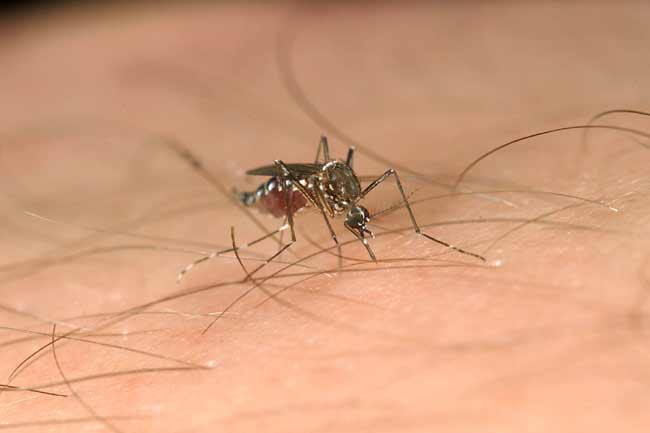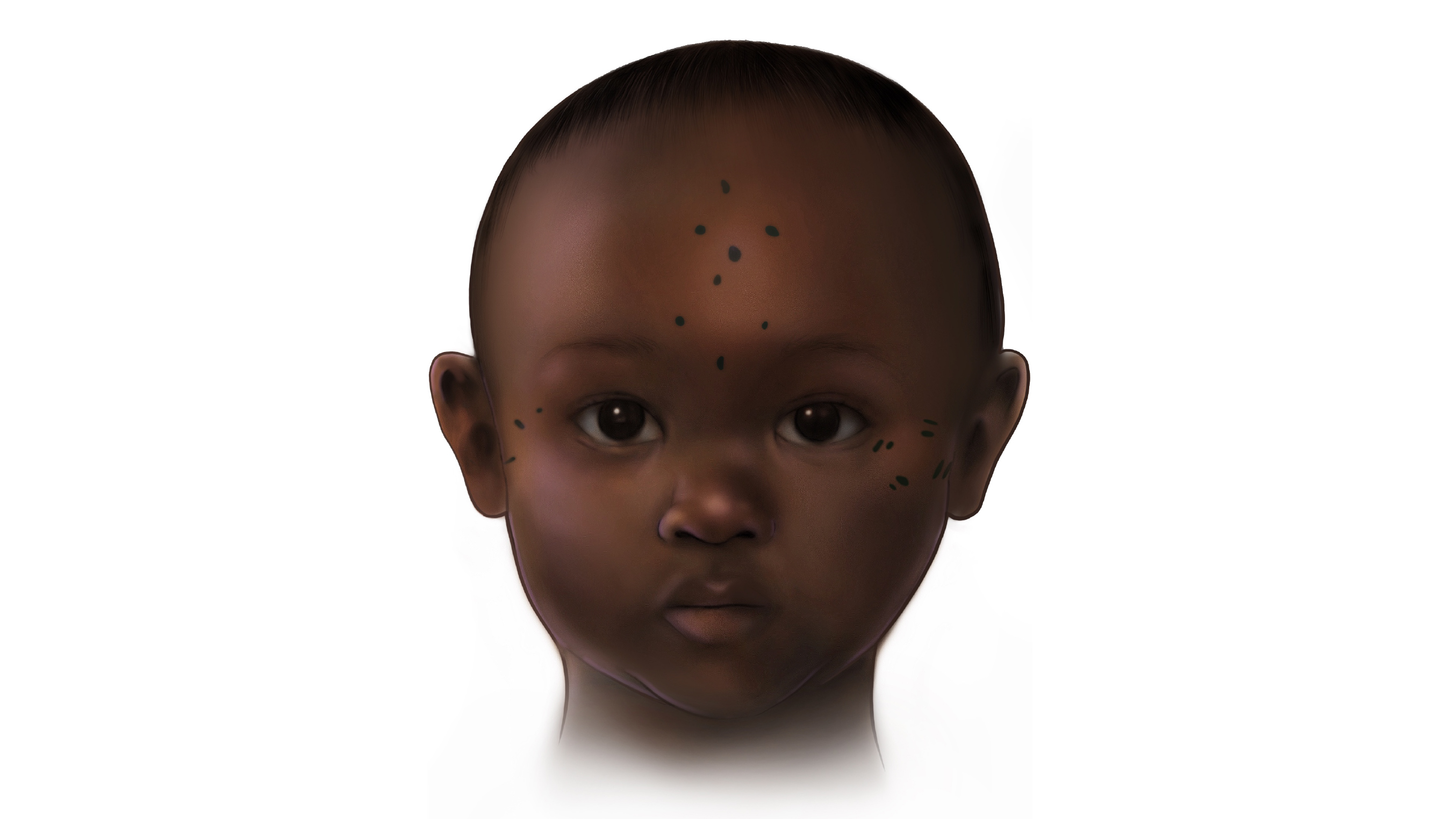Natural Mosquito Repellent Being Developed

We all know that one person who comes home from the camping trip without a single bug bite. Perhaps they advise their unlucky mates to eat more garlic, or fewer bananas.
But it may be that these folks are born with a scent that keeps mosquitoes and other biting insects away. Recent research has isolated chemicals emitted by "bug-proof" individuals, which appear to counteract the odors that hungry bloodsuckers generally home in on.
The study showed "unequivocally that there are compounds that interfere with the normal attraction that mosquitoes have towards humans," said John Pickett from Rothamsted Research in England.
Pickett told LiveScience in a telephone interview that he and his colleagues are working on a mixture of these compounds that could serve as a natural insect repellent.
Selective Biting
After his own research showed that certain cows gave off odors that protected the entire herd from flies, Pickett had his grad student, James Logan, look for a similar chemical shield in humans.
There are certain mosquitoes, like the one that transmits yellow fever in Africa, for which human blood is the preferred meal, but it is not known exactly how these insects locate their hosts. Carbon dioxide and heat are thought to be attractors, but these emissions are not peculiar to humans.
Get the world’s most fascinating discoveries delivered straight to your inbox.
There must be some human scents that particular insects pick up on. For people who rarely get bitten, the prevailing wisdom had been that they do not emit these chemical flags.
"Usually what you think is that a mosquito flies around and then smells something juicy that it goes after," Pickett said.
But he and Logan have shown that everyone is "juicy" to some extent. It is just that certain individuals exude chemicals that mask the attractive smells or simply repel biting insects.
Mosquito sensing
To isolate these unattractive compounds, the researchers found volunteers who kept yellow fever mosquitoes at bay. The chemical emissions from these bite-resistant people were collected from their hands or from their entire bodies, using a special foil sleeping bag.
To determine which of these chemicals mosquitoes can smell, the scientists attached tiny wires to the antennae of several insects and then exposed them to individual compounds.
"We can put electrodes across the antennae of a live, but immobilized, insect," Pickett said. "We record the potential - which changes when the mosquito senses something."
Once a substance was found to be perceptible, it could be tested for its repellant properties. The mosquitoes were placed into a y-shaped tube and given the choice of moving upwind along either branch. An attractive odor wafted down both branches, but only one branch had the particular scent being tested.
The researchers discovered 11 compounds that the yellow fever mosquitoes consistently avoided.
Product potential
The results have not yet been published, as the research team is still looking at how effective mixtures of the 11 unattractive compounds are at warding off mosquitoes. The goal is to come up with a marketable product.
Pickett said this potential repellent should be effective on all sorts of biting insects - not just yellow fever mosquitoes. They have already tested some of the compounds on the Scottish biting midge and Anopheles gambiae - the mosquito that spreads malaria - and have seen similar results.
Currently, most insect repellents contain DEET, which is a synthetic compound. Although the Environmental Protection Agency has found DEET to be safe if used properly, Pickett thinks that natural chemicals, which some of us emit from our bodies, could make for a better repellent.
There are natural products already available for combating bugs, but they are generally plant extracts, like citronella, which try to cover up our animal smell.
"They are not very effective," Pickett said. "Mosquitoes can often see through these disguises."



